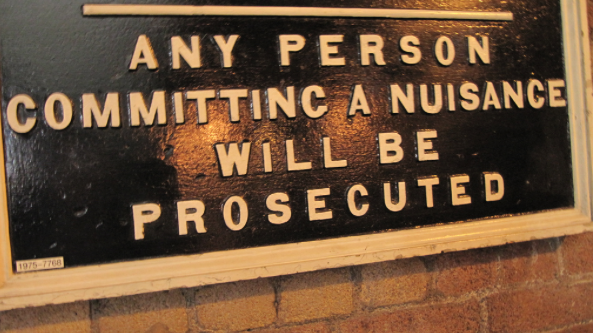Sometimes business can be rough, especially when you’ve got regulators breathing down your neck. The problem is that the authorities are rarely benign. They’ll take action against your business, rightly or wrongly, if they think you’re not compliant with their laws. Let’s take a look at some of the stuff that can get you shut down.
Operating Without The Right Permits
Unfortunately, we don’t live in a genuinely free market economy, contrary to what people in the media would like you to think. Instead, most businesses have to apply for a permit from their local authorities(Local Council) to begin their operations. These permits are usually designed to make sure that companies already in the industry can continue to operate with minimal competition, although the authorities will usually come up with a more noble-sounding excuse. Enterprises that don’t apply for the proper permits risk getting shut down as soon as their operations are discovered. There are all sorts of permits you need to consider, including zoning permits, signage permits, fire permits and building permits.
Failing To Observe Regulations.
Businesses are subject to literally thousands of regulations at all levels of government. Often, entire business departments are dedicated to making sure that businesses remain compliant, at enormous cost to both employees and customers. Failing to follow these rules mean that you’re likely to get shut down.
For instance, some companies have been shut down for failing to adequately test their electrical equipment on site. Fortunately, this problem is easily solved by using test and tag services. These services check the safety of electrical appliances, like kettles, and then tag them to say that they have passed inspection.
Being Declared A Public Nuisance
No business wants to be declared a public nuisance. But if the local authorities feel that a business is affecting the safety or the health of the local community, they can shut it down. Companies that emit bright lights, fumes or loud noises are all at risk of being declared a public nuisance, as well as those that produce “offensive odours.”
For example, a company that makes hot sauce was shut down last year because of the emissions given off by its factory after a public nuisance lawsuit.
Operating In Legal Grey Areas
Legal grey areas are those areas in which a business’s activities aren’t necessarily illegal in themselves, but there’s a high chance that the firm could either be implicated in a crime or could be shut down by law in the future.
Take so-called “legal highs” for instance. These are substances that are not currently banned under current drug laws, but have similar effects and could be banned under future legislation. A business selling legal highs could find itself getting shut down if the government suddenly makes its product illegal. Many vaping companies face the same prospect today: government are moving against vaping as if it is the same as tobacco, sticking high taxes on it and artificially shrinking the market.
Staying out of legal grey areas is important if you want your business to survive long term.
Want to learn more?
It’s as simple as 1… 2… 3…
- Just starting out? CLICK HERE
- Been working in your businessfor two years or more? CLICK HERE
- Try coworking at CoSydney – Check us out! Book a FREE TRIAL DAY
We’re here to help you to take action just like we’ve helped thousands of other entrepreneurs, business owers and creative professionals all around the globe.
Now is the time to let your passion SHINE.
Now is the time to Make Tomorrow Today!
To your success,
Vinh Van Lam & Stuart Horrex
Your Creative Coaches CoSydney & ArtSHINE





